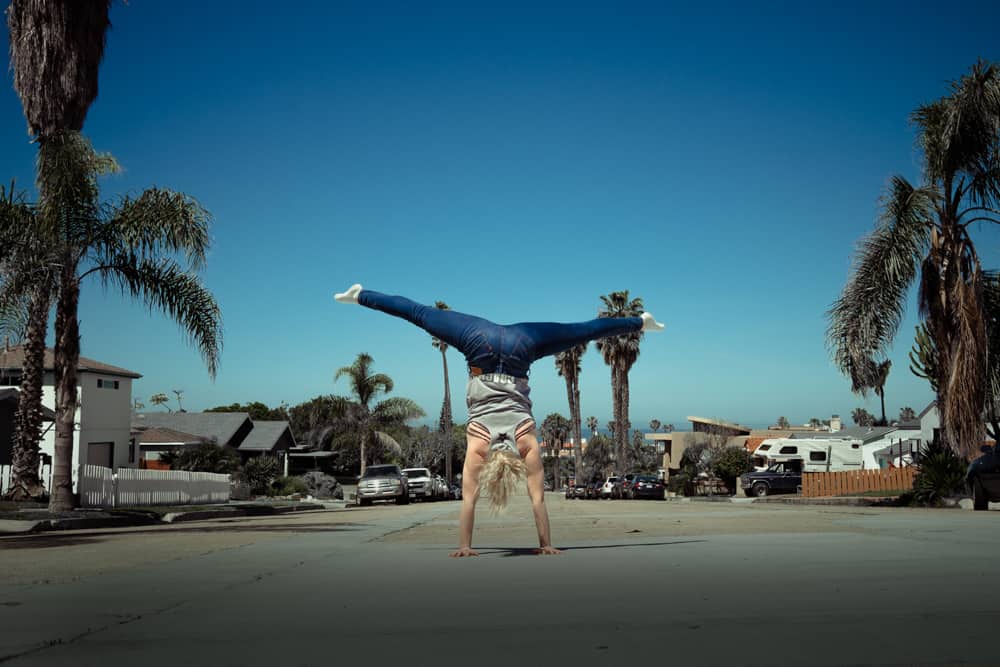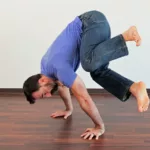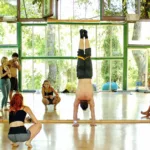Many people – maybe even you – find handstands to be an exciting skill to learn.
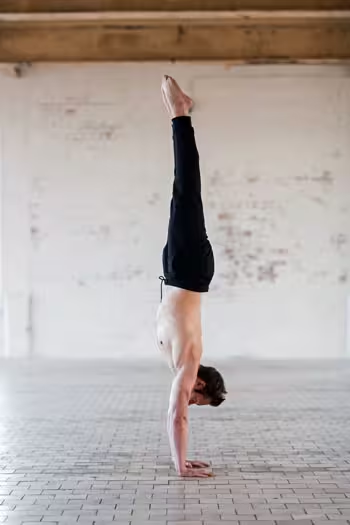 It might be your current goal, or just a neat side project to dabble with between sets in the gym.
It might be your current goal, or just a neat side project to dabble with between sets in the gym.
But as you start to venture into the world of handbalancing, social pressure creeps in. Is there only value to training handstands if you aim for a high level of mastery?
More generally, is any physical practice worthwhile if you don’t set high ambitions and lofty goals?
Different people will have different answers to these questions, and those different answers will have very real implications to how one approaches training.
Draw a Line Between Motivation and Obsession
Let me start off by saying that no, you have no need to change your Instagram handle and make your personality all about handstands to enjoy learning the skill.
Some become more obsessed than others, but there is no inherent value in that.
People are different and enjoy it at different levels.
It’s easy to glorify those who “really go for it” and put them on a pedestal, especially in the age of social media. But this can be counterproductive.
Sure, it’s great that some get completely absorbed by it, and even become performers (which I know a thing or two about), but to me, that shouldn’t represent the blueprint for the practice as a whole.
There is of course nothing wrong with having standards and discipline. It’s both useful and motivating to have something to reach towards.
But at the same time, Usain Bolt’s training program will be a bad fit if your goal is to improve your pace in your Sunday running club.
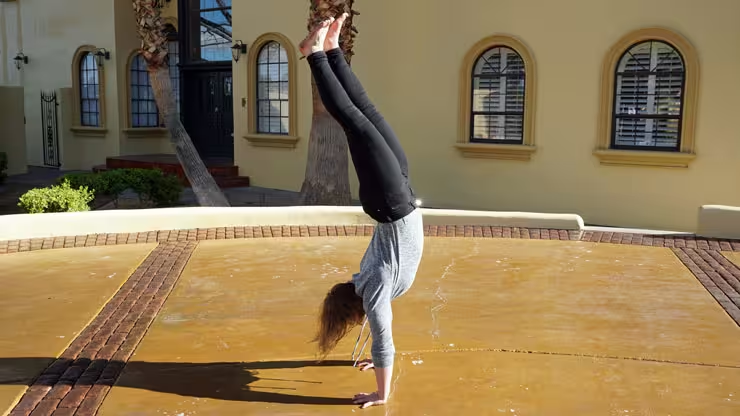
Perfect? No. This is still enjoyable and productive training.
Match Your Commitment to Your Goals
Handstands, or any physical activity like martial arts, skiing, etc. can (and should) be highly enjoyable even if you never want to commit to high level skills like a press or standing on one-arm.
Because if you don’t have high ambitions on how far you want to go with it, you won’t need endless training hours and strive for perfection.
Few know up-front how far they want to go with a physical practice like handstands.
Goals fluctuate over time.
What is important is if you train recreationally, focus on making the process interesting and fun.
Because you do not need the same level of detailed perfection as someone who is going to apply to a high level circus school.
Enjoying the Process at Any Level
Even if you aren’t investing hours and hours a day into training like those in circus school, it should still be satisfying.
You are still learning things you maybe thought you could never do, getting stronger, and developing a new relationship with your body.
On the other hand, if you want to go pro you need to train more and more consistently.
You need to put more pressure on yourself, be strict about form and technique. Focus on this one thing you want to get exceptionally good at.
You’ll be trading a well rounded fitness routine for specificity. It will cost a lot and it might be worth it, but it might also not. Handbalancing is not glorious in and of itself, but if you’re feeling called to dive deep into the discipline, go all in.
And if your interest shifts over time, or life gets in the way, you shouldn’t feel lesser if it is no longer your path.
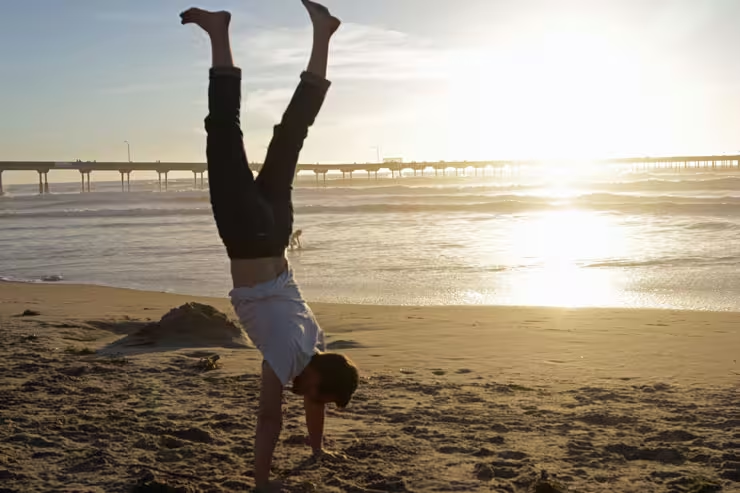
This handstand is imperfect. Maybe James should just give up?
Find Your Own Path
All of this is to say you should ponder on “why” you practice, and let it guide what your training looks like.
This is where I agree with GMB’s concept of Physical Autonomy.
Now don’t use my argument as a justification to slack off from important details, but I also don’t want you to hyperfixate on why your handstand doesn’t look like those of a world class balancer after just a few weeks (or even years) of training.
Remember, you have time.
There isn’t a competition you have to attend next week nor a date you gotta show skill X. You aren’t banished to the 9th circle of hell for bending your legs in a straddle.
Work on your details, but don’t beat yourself to pulp for not achieving perfection immediately.
Make sure you have a reasonable training schedule so that you get stuff done.
Whether it’s handstands or some other activity, learning will always have an element of frustration, but don’t let it become an element of stress.
Life already has enough of that.
Get Complete Instruction in Every Facet of Hand Balance Practice
Since everyone trains handstands for their own reasons and at their own level, Handstand Factory makes incredibly comprehensive courses to meet you where you’re at and guide you to the next step.
Check them out!
